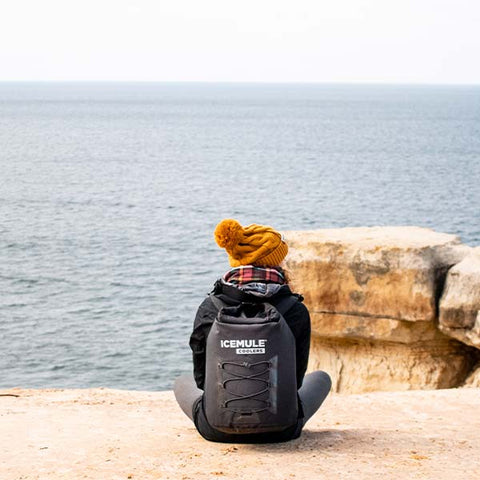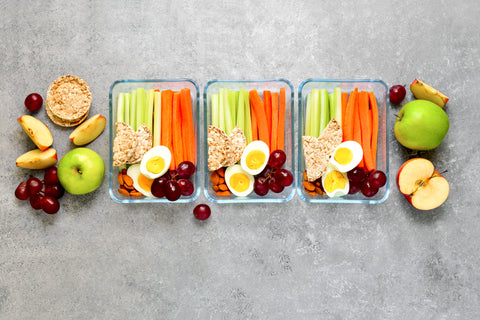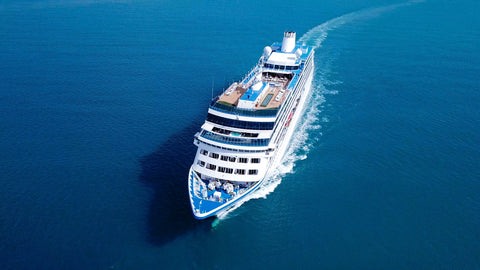
How To Stick To Your Food Budget on Vacation
Vacations are inherently expensive. Many families choose to budget on vacation by finding reasonable hotel rates and making do-it-yourself fun (like camping or beach time). But there is a hidden cost in family outings, and that is the food budget. Sure, if you and the kids (or just the spouse) were at home, you would still need to eat. But when on vacation, the “eating out” factor can quickly spin out of control.
Not only does dining out cost buckets of money, it’s not the healthiest choice if you are trying to keep to a budget on vacation. Plus, kids often eat half their food, and the rest goes to waste. For most people, vacations are meant for togetherness, fun, the outdoors and maybe a dose of adventure—not exclusively eating and drinking!
We offer six rock solid methods to stick to your budget on vacation and conquer the problems of overspending, food waste, and unhealthy choices.
1. Invest in a decent cooler.
Without a cooler you’ll be bringing only packaged foods, and you’ll need to pull over every time you want a cold drink. Coolers these days are nothing short of miraculous, particularly if you think about the fact that IceMule’s insulated backpack coolers can fit up to 40L of your favorite food and beverages plus ice. While the Pro XXL comes in at $139.95, for around $100 you can buy a decent-sized IceMule that will keep your food and beverages cold for hours on end. Really cold. That expense is significant, but consider the fact that IceMule’s coolers are made of a lightweight, durable material that allow it to last just as long as its bulkier, plastic counterparts. In it, you can haul sodas or water, cream for coffee, OJ, cheese and eggs for a quick breakfast, and, of course, a six-pack of beer for relaxing at the campsite.
2. Estimate food costs based on what you already eat.

If you are planning to limit restaurant meals to 20% of your budget (a realistic goal, for vacationers) take foods you know you and the kids will eat. Sure, that box of protein bars might be economical, but are you really going to choose that over snagging some french fries and a milkshake on the road? Instead, invest in the items you normally have at home: bring peanut butter and jelly and the usual bread, some veggies, and some chips (obviously), then get the kids involved in making their lunches.
3. Plan meals for each day.

It’s a hassle to think that far ahead, but phrases like “I’ll just eat fruit for lunch” are unhelpful when you’re halfway up your hiking trail and you find yourself ravenous for something more substantial. If you can, try to plan out some of your meals, and pick the meals you want to splurge on. It’ll give everyone something to look forward to, and will create reasonable expectations with regards to your budget on vacation. It might sound limiting to do this at first, but once you get the hang of it, it can free you up to invest in the things you want to spend your money on, instead of blowing your budget on every food stand in town.
4. Avoid over-purchasing on the small stuff.

Vacations are a time for relaxation, so it’s tempting to go for convenience foods, and all of the little things you’d have around your house. While your week off may be the perfect time to drink Starbucks everyday (we wouldn’t blame you), it might not be the most economical option. Consider the cost of these smaller items, and try to limit yourself to only the things that will make your vacation all that you envisioned. If you can, try buying specialty drinks en masse, or making your own coffee, cocktails, and lemonade.
5. Consider an all-inclusive vacation package.

Nothing says sticking to a budget on vacation like an all-inclusive resort. Both resorts and cruises offer all the food you can eat, along with the pleasures and amenities of any top-tier vacation. All-inclusive trips also offer a variety in activities and foods that wouldn’t be attainable on a normal vacation, making them well-worth the extra cost if you have a family of picky eaters. The key: if you choose the all-inclusive route, have a talk with the family about spending above and beyond the “all-inclusive” sticker. This will help limit extraneous costs without squashing the fun.
6. Shoot for 90% “home-cooked” meals.

Maybe you’ve chosen a nicer place to stay in exchange for being able to go out every meal. If you’re dead set on sticking to your budget on vacation, see if you can get through a ten-day (or one week) vacation with only three meals out. It’s a tall order, but it will save you hundreds of dollars, and probably a few pounds. Make a menu that plans on only one meal out for every ten, pack your super packable IceMule cooler, and hit the road!

